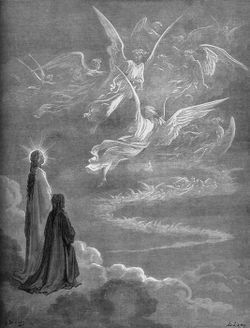UnNews:Scientist studies afterlife
4 August 2012
NEW HAVEN, CT – Yale University's Professor Amos N. Grace has been awarded a $5 million grant to determine whether there is life after death. To support his study, he needs to recruit 1,000 volunteers who are willing to make the ultimate sacrifice to science. “I'm not asking people to donate their organs, or even their bodies,” Grace clarified, “but their very lives.” So far, he has had few takers.
One of the topics the study will investigate is which religion, if any, has the most “tenable” theory as to what, if anything, happens on the other side of the grave. The results of this aspect of the study, Grace said, will have “practical value” for the living. “If the ancient Egyptian concept, rather than the Christian idea, of life after death proves to be more accurate, and life after death is similar to life here and now, there's no need to hope for heaven—or to fear hell—and, one might argue, therefore, that it's party time.”
The study will also explore the question as to whether life beyond death diminishes life in this world. “Maybe we need death to give zest to life,” Grace suggested. “Maybe Mark Twain was right, when he observed, 'we owe Adam a debt of great gratitude, for it is he who brought death into the world.'”
Presently, what is believed to be known about life after death is “mostly anecdotal,” Grace contended. “We will put hearsay reports to the test, scientifically, by putting our research subjects to death and seeing, firsthand, whether they survive.” His team's procedures “will be rigorous, comprehensive, and empirical,” and will investigate such “quaint notions” as “God, the devil, heaven, hell, immortality, the soul, and instant karma.”
Dubbed the Immortality Project, Grace's research will also include “up-close and personal” evaluations of near-death phenomena. “If any of our subjects do survive the research, they should be able to confirm stories that there is a light at the end of the tunnel of the Obama administration,” Grace declared.
The study has other, even more important benefits, Grace insisted. “We will also know, once and for all, whether there really is pie in the sky, bye and bye, and, if so, how much and what kind.” His own favorite is rhubarb, Grace said, but he “doubts” that there is likely to be any left over by the time he himself dies, as “people are naturally going to want more than one serving.”
Grace hopes that the Muslim idea of life after death proves to be the true, or most accurate, version. “I wouldn't mind having 72 virgins at my beck and call,” he said, “unless they look like Arab women or wear burqas. Hairpie in the sky would be better than even rhubarb pie.”
